Monthly Journal
January 2024
International Press Review
The most relevant events of the area through international sources
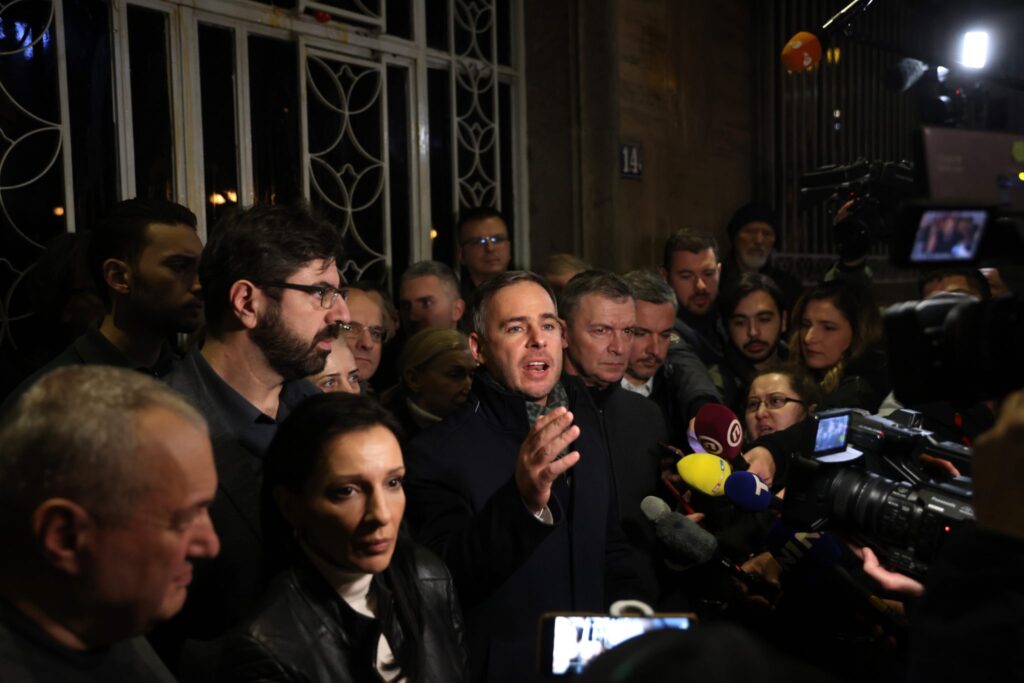
Official results confirm Vucic’s SNS victory in Serbia
Balkan Insight
Serbia’s Election Commission released the official results of the 17th of December parliamentary elections, following re-voting at eight polling stations, which did not alter the outcome. The ruling Serbian Progressive Party of President Vucic, the SNS, secured 46,75% at national level, while the main opposition coalition, “Serbia against Violence,” obtained 23,66%. The traditional SNS’s partner, the Socialist Party of Serbia, SPS, received 6,55%. Two right-wing opposition lists also succeeded to enter the new Parliament: the NADA coalition led by the New Democratic Party of Serbia garnered 5%, and the populist list “We – Voice of the People,” led by COVID vaccination sceptic Branimir Nestorovic, secured 4,69%.
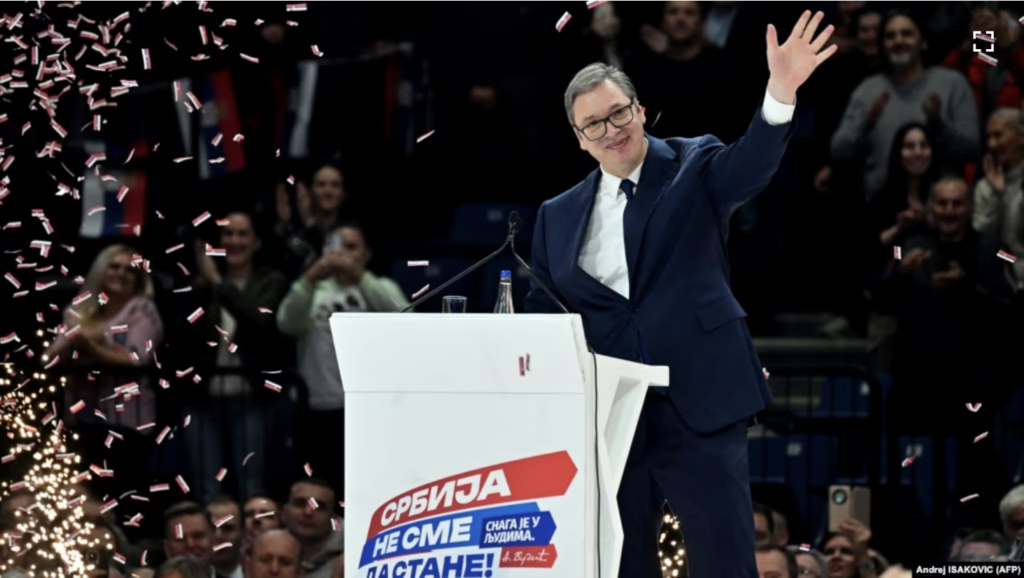
Vucic rejects calls to annul December elections
Radio Free Europe
Serbian President Aleksandar Vucic has dismissed calls for an international investigation into alleged voting irregularities in recent parliamentary and local elections, in particular in the capital, Belgrade. The disputed 17th of December elections, won by the ruling Serbian Progressive Party (SNS), triggered opposition-led protests demanding annulment. Protesters, mainly in Belgrade, allege widespread vote fraud by the SNS, a claim denied by authorities but supported by independent and international observers. New protests were held in January, but the numbers on the streets of Belgrade seemed to be decreasing. Vucic has anticipated that the new government could be formed already in March.
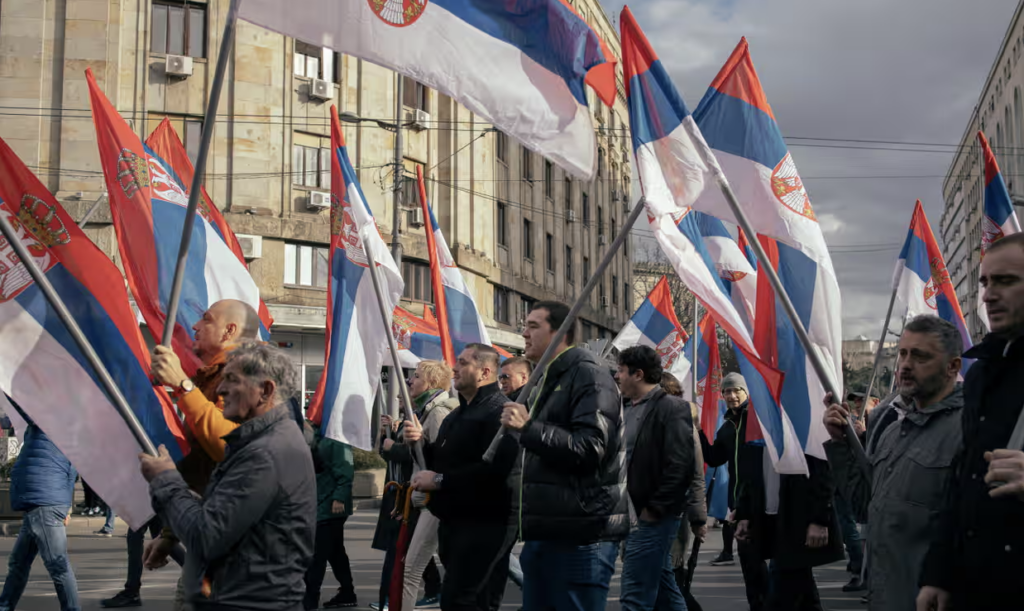
’State capture’: a problem in Serbia and for the Balkans
The Guardian
A Guardian op-ed suggested that Serbia, under the control of the Serbian Progressive Party (SNS) for over a decade, witnessed a steady erosion of democratic norms and the rule of law, resembling a classic case of state capture, led by president Vucic. The flawed recent elections indicated Europe’s acquiescence to a government pursuing an authoritarian, ethno-nationalist agenda, the daily wrote, adding that, despite aspirations to align Serbia with the EU and diminish Russian influence, Western influence was compromised, especially since the Ukraine invasion. The hope that the prospect of EU membership, no matter how vague, would encourage Serbia to uphold democratic norms and refrain from undermining neighbouring states proved to be unfounded, while Vucic is suspected of using his power to foment discord in the region, The Guardian argued.
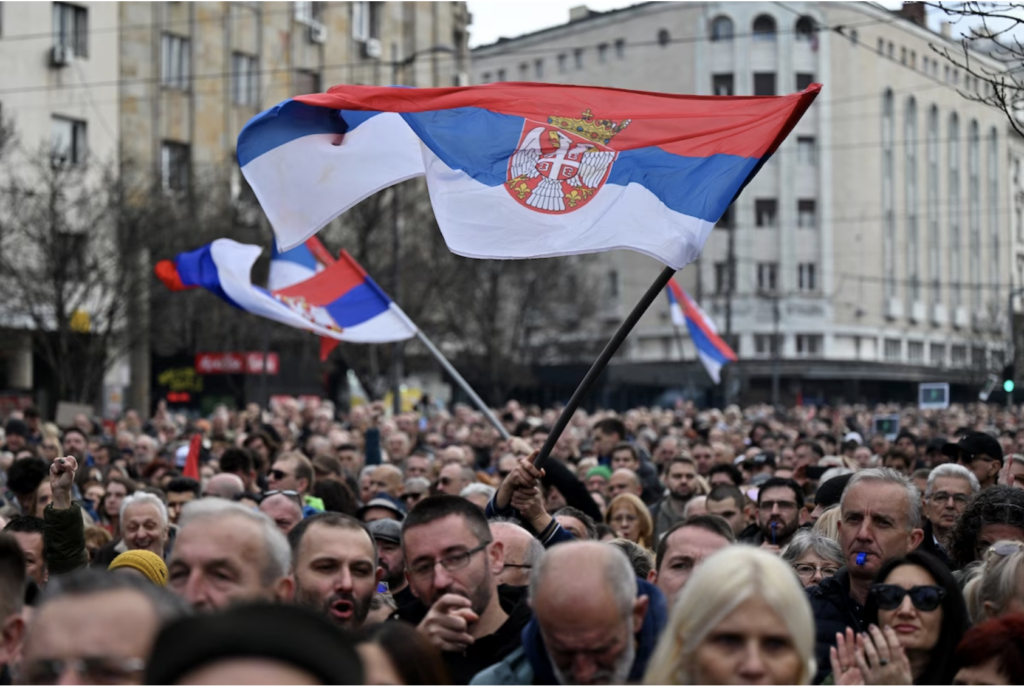
Biden ‘appeasement’ strategy towards Vucic, a failure
The Washington Post
The Washington Post argued in an op-ed that US President Joe Biden’s policy of ‘appeasement’ toward Vucic’s Serbia has proven unsuccessful. The Biden administration’s conciliatory policy toward Serbia faces too many challenges, the op-ed reads, recalling in particular the Serbian involvement in the ongoing crises in Kosovo. Moreover, Vucic continues with his balancing strategy between West and Moscow-Beijing, refusing to adhere to Western sanctions on Russia while allowing arms shipments to Ukraine.
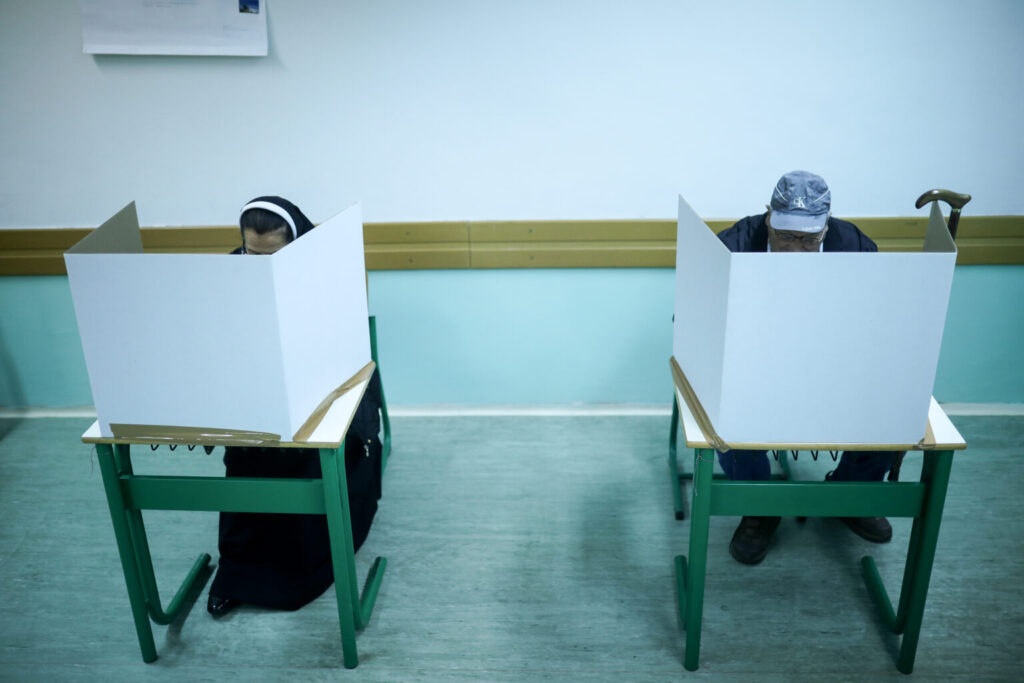
Croatia heading to three elections in 2024
N1
In 2024, Croatian voters will participate in European, parliamentary and presidential elections, three votes that will shape the future of the EU and Balkan country. The European Parliament elections are scheduled for the 9th of June, with Croatians electing 12 MEPs. The dates for the Croatian parliamentary elections and the first round of the presidential elections are yet to be announced. However, the ruling HDZ is expected to dominate national elections according to surveys. Controversial President Milanovic, a Social-Democrat, is anticipated to seek a second term.
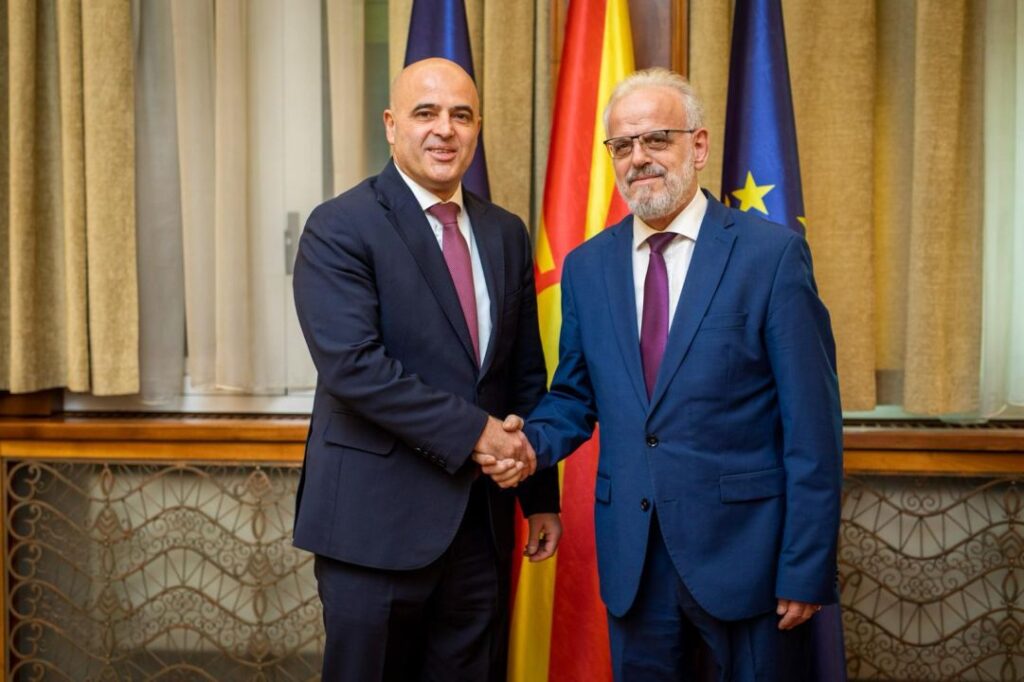
North Macedonia chooses Albanian politician as interim PM
European Western Balkans
At the end of January, North Macedonia’s Prime Minister Dimitar Kovacevski resigned to facilitate the formation of a technical government before the upcoming parliamentary elections on the 8th of May. The potential second round of the presidential elections is also scheduled for the same day. Talat Xhaferi, nominated by the Democratic Union for Integration, succeeded Kovacevski, thus becoming the country’s first ethnic Albanian Prime Minister. Consequently, Jovan Mitrevski, a member of Kovačevski’s SDSM party, will take over as the new Speaker of Parliament, succeeding Xhaferi.
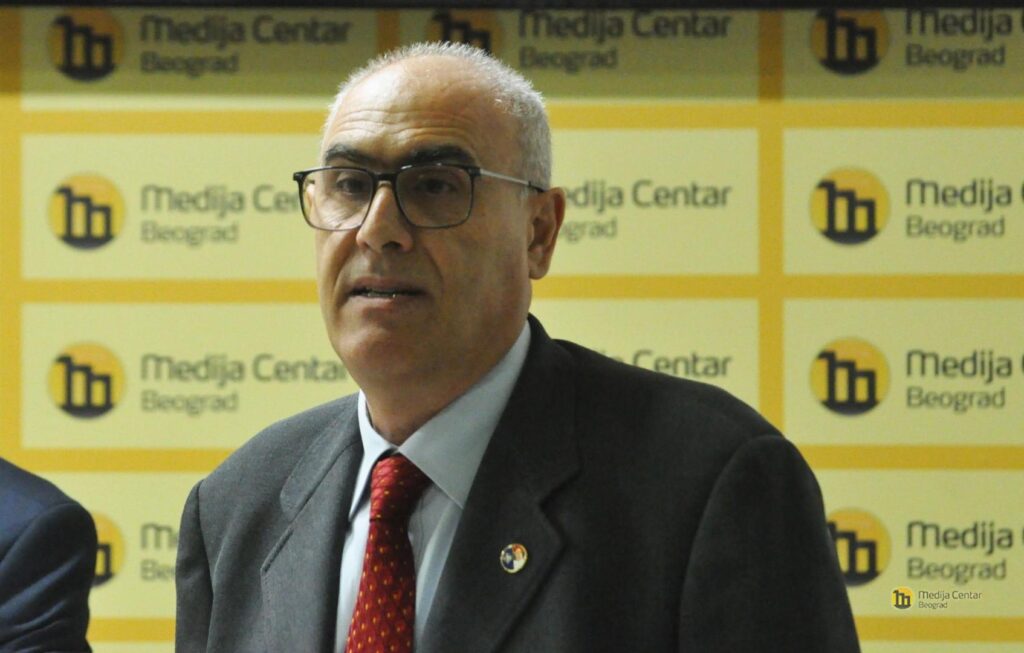
NATO fully respects Serbia’s neutrality
Demostat
Brigadier General Giampiero Romano, Head of NATO’s Military Liaison Office in Belgrade, reaffirmed NATO’s full respect for Serbia’s policy of military neutrality and Belgrade’s decision to remain only a partner to the military coalition. Despite Serbia’s choice not to join NATO, the Alliance achieved excellent results through the partnership, characterized by close political dialogue and practical cooperation, Romano noted. The NATO’s representative also emphasized the right of each country to decide its own future and foreign policy, in particular in the Balkans. NATO is committed to respecting Serbia’s decisions without imposing any choice, Romano stated.
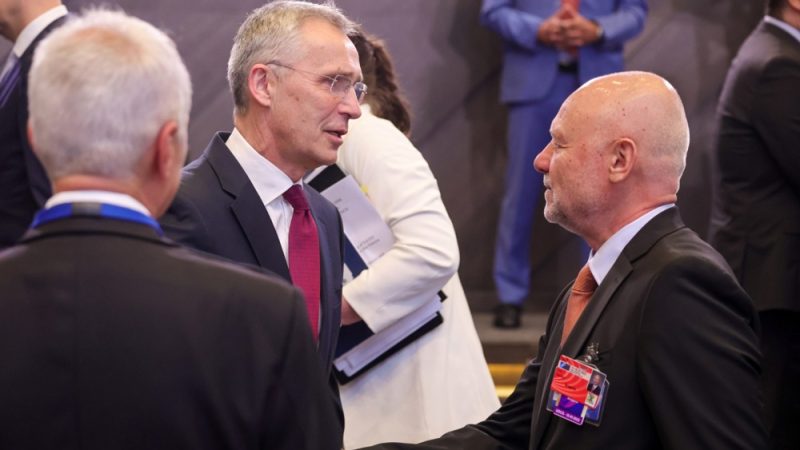
Bulgaria to invest six billion to rapidly deploy NATO military forces
Euractiv
Bulgaria’s Defense Minister, Todor Tagarev, revealed a 6 billion-euros investment in infrastructure aimed at facilitating the rapid deployment of NATO forces on the eastern flank, if needed. The investment, separate from the defence budget, will enhance road and railway infrastructure for both military and civilian purposes. Currently, a multinational NATO battle group is stationed in Bulgaria under Italian command, with plans to expand the contingent to 1.500 units and establish a military base in southern Bulgaria to accommodate a full brigade (5.000 troops).
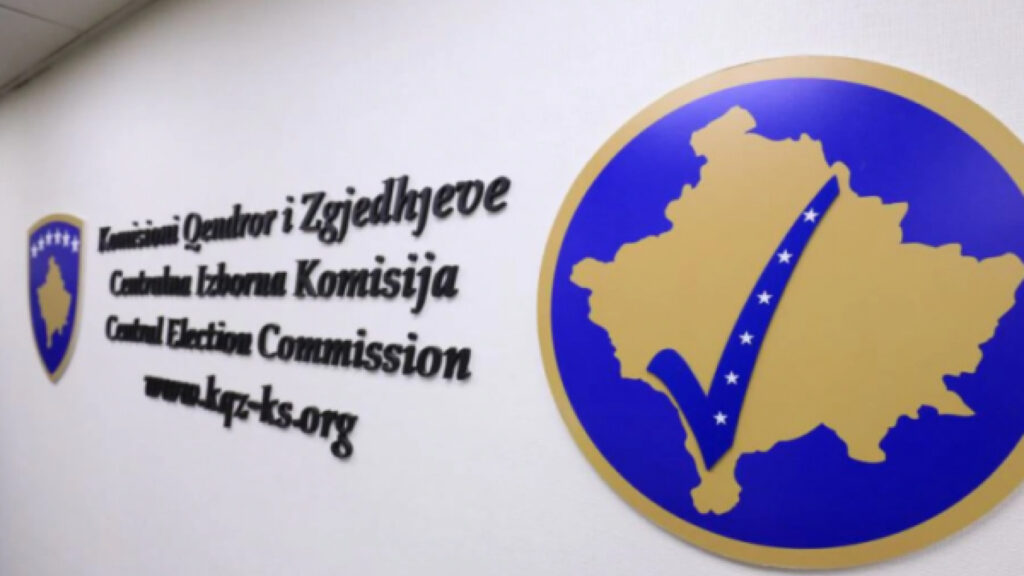
Kosovo Serbs collected signatures to dismiss Albanian mayors
Kosovo Online
A petition to recall ethnic-Albanian mayors in four municipalities in Kosovo’s north, predominantly inhabited by Serbs, began in January. Thousands of Serbs signed the petition, seeking to dismiss mayors elected in the April vote, which Serbs boycotted, leading to one of the worst escalations of tension and violence in the former Serbian province. If enough signatures are gathered, President Vjosa Osmani might call for snap elections in these municipalities. Prime Minister Albin Kurti recently mentioned the possibility of holding elections in Serb-majority municipalities in the north in the coming months.
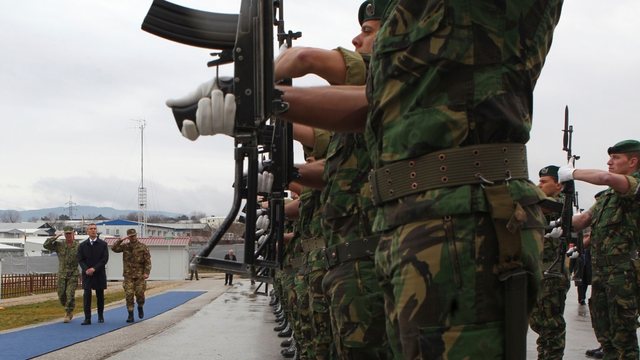
NATO Secretary General warns situation in Kosovo remains fragile
CNA
NATO Secretary General Jens Stoltenberg, after meeting Montenegro’s Prime Minister Milojko Spajic in Brussels, stated that the security situation in the Balkans and in particularly in Kosovo remains fragile. Stoltenberg condemned the violence in Kosovo observed last year and highlighted NATO’s swift response of deploying an additional 1.000 troops and heavier armoured vehicles to assist the KFOR mission in fulfilling its mandate. “We are committed to making sure that KFOR continues to fulfil its mandate according to the UN,” Stoltenberg said.
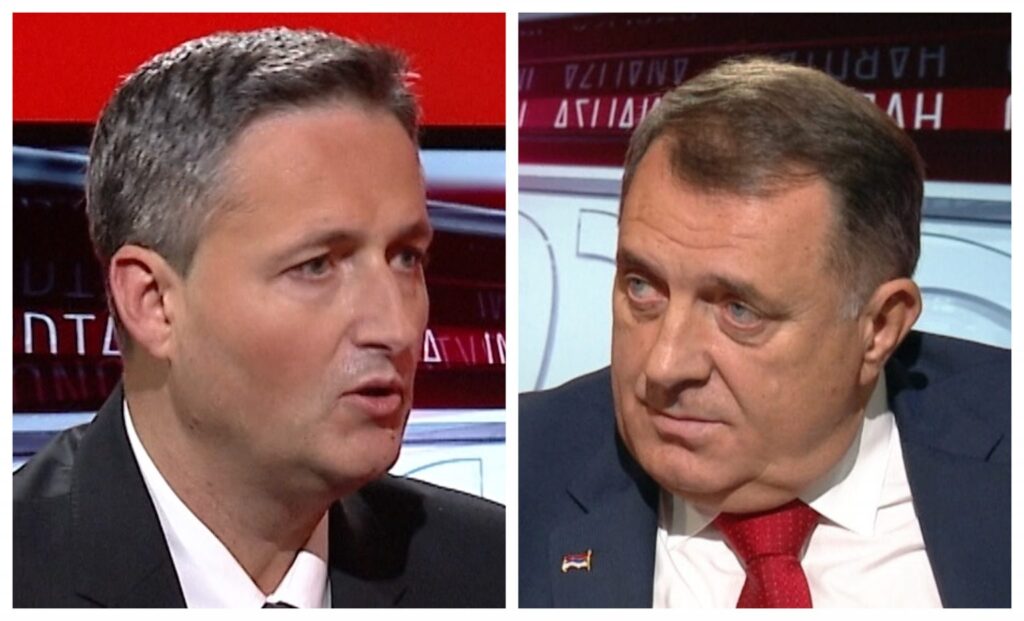
Bosniak leader urges US, NATO to prevent conflict
BNE Intellinews
Denis Becirovic, the Bosniak member of Bosnia and Herzegovina’s tripartite presidency, urged the US and NATO to counter Milorad Dodik’s secessionist actions in Republika Srpska, warning of a potential armed conflict. Dodik’s party, the SNSD, passed laws challenging mandate of state-level institutions, heightening tensions in the already unstable country and celebrated the unconstitutional ‘Day of Republika Srpska’ on 9 January. In a Washington Times op-ed, Becirovic linked Republika Srpska’s activities to the Russian invasion of Ukraine, and emphasized the vulnerability of the region due to Republika Srpska’s pro-Russian stance.
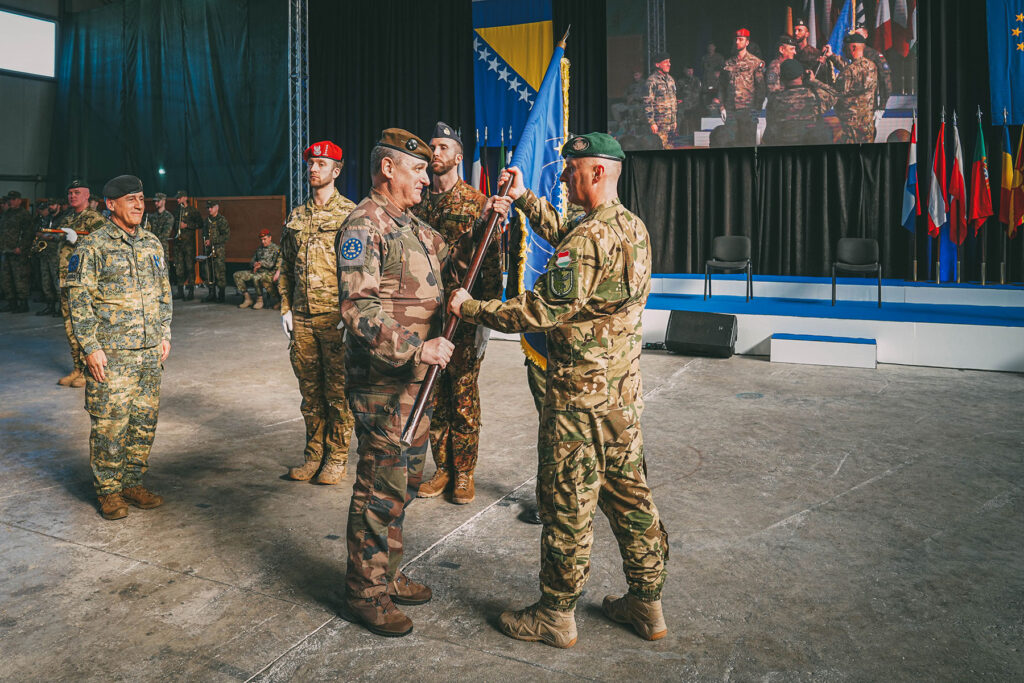
EUFOR ready to intervene if situation escalates in BiH
Sarajevo Times
Major General Laszlo Sticz, the new commander of EUFOR peacekeeping forces in Bosnia and Herzegovina (BiH), emphasized that their intervention would only occur if the BiH police were unable to maintain peace, but the force is ready to act, if needed. Sticz, who assumed command in January, underscored the secondary nature of the military force, stating that EUFOR would act if the local police were incapable of ensuring peace. The Hungarian high officer pointed to the risks of escalation, as witnessed in Kosovo last May, highlighting the importance of an impartial and credible international military force with a deterrent capability.
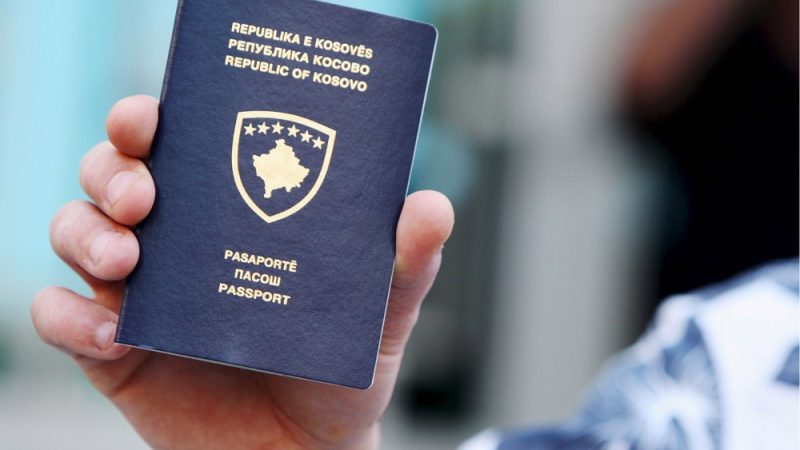
Spain recognizes Kosovo’s passport, not independence
Euractiv
Spain has announced its recognition of Kosovo passports, enabling visa-free entry for Kosovars in Schengen countries starting from January 1. This, however, doesn’t signify recognition of Kosovo’s sovereignty, Madrid noted. Spain clarified that accepting ordinary Kosovar passports doesn’t alter its non-recognition stance on Kosovo. The move, shared by other non-recognizing states, is considered a procedural acceptance without implying sovereignty recognition, international media reported.
The Insight Angle

Gjergji Vurmo
Senior researcher and Programme Director at Albania’s Institute for Democracy and Mediation (IDM), one of the leading think tanks in the country. His research is primarily concerned with governance, state capture, money laundering, civic space, and EU enlargement. He is the author of numerous studies and reports on civil society development, governance, EU accession and related processes in Albania and in the Western Balkans. Vurmo works also as a consultant and advisor for a number of international organizations that support reform processes in Albania and the wider region, including EU agencies, FCDO, OSCE, UNOPS, UN agencies, GiZ and USAID. He contributed to reports and studied of the Open Government Partnership, USAID, to the CSO Sustainability Index, Open Parliaments and to Freedom House’s Nations in Transit global reports on Albania.
You are recognized as an authority on ‘state capture’ in the Balkans, a phenomenon describing widespread political corruption in a country where private interests exert significant influence over a government’s decision-making processes. Could you elaborate on the severity of this issue in the region and identify the countries which are most profoundly impacted?
State capture and the rise of authoritarianism are two phenomena that go hand in hand. It is the most severe form of corruption, which comes as a consequence of structured failure of state institutions and societal players to fight and prevent corruption in general.
Countries of the Western Balkans (WB) share in this regard a long experience of such failures over the last three decades of post-communist transition. Certainly, at different moments of this period, various countries have shown varying degree of willingness to fight the phenomenon and success therein. However, in mid to long run, their efforts have been undermined by the powerful linkages and from players benefiting from corruption and captured sectors of the economic, social and political life.
Three decades from the fall of Communism and over two decades of European integration reforming processes, WB countries are equally threatened by the ‘state capture’ pressures. While some of them have managed in the recent years to resist or fight back the phenomenon with varying degrees of success, other WB countries are struggling with more advanced stages of state capture.
Serbia is beyond any doubt one such example of a society and state profoundly captured by such mixture of illegal and illegitimate interests which extend to the economy, politics and other societal segments. To a certain degree, Albania is struggling with a similar situation although the judicial reform and the newly established judicial bodies for the fight against organized crime and corruption are slowly starting to deliver the first results.
On the other hand, Kosovo appears to be the only country in the region which has managed in the recent years to fight back the phenomenon of grand corruption and capture. To a large extent I would say that this is owed not only to state institutions, but especially to a stronger awareness and commitment of citizens and societal actors who have punished corrupt political elites through several election cycles. Of course, even in the case of Kosovo more needs to be done in order to punish through judicial convictions the high-level political corruption.
Does the issue of state capture obstruct the progress of EU integration? In which ways?
Absolutely yes. First of all, it does so by undermining EU accession reforms and disabling institutions to deliver on benchmarks and other agreed obligations under the European integration process. Secondly, by creating a general feeling of distrust and disillusionment with EU integration reforms promising greater rule of law. This helps authoritarian leaders get public support and leverage in questioning EU accession reforms, especially those that threaten captured (political, economic and other types of) interests and sectors of a society, at the expense of public interest. It further leads to the third stage of a state capture; that is the situation where main players of the captured WBs states become the “necessary evil” in the eyes of internationals who don’t have a particularly strong incentive to push for EU accession and enlargement for all kinds of reasons (public pressure at home, foreign influences penetrating their own political arena and so on).
Focusing on enlargement, the Balkans’ integration process appears to be at a standstill, with even Bosnia trailing behind Ukraine and Moldova. Notably, also North Macedonia and Albania, notwithstanding the reforms made, face delays. Are you optimistic that a new momentum for enlargement will emerge after the European elections? If not, what risks do these countries in the region face?
Unfortunately, I am not very optimistic. It’s been over a decade of talking how “something is wrong with the enlargement” and what we have seen by EU and member states as a response is just some small fine-tunings or even face-saving tricks rather than a profound change of the enlargement pace.
The first mistake we all have done in this discourse is that we have treated the “reform of enlargement” as merely technical and separately from other dimensions of relations between the EU and the concerned countries (be it WBs or others). More specifically, you cannot hope for different results just because you’ve changed the monitoring methodology or just because you’ve regrouped negotiating chapters for as long as you still pin your hopes on the “necessary evil” offering stability in that country / region, rather than the outcome of democratic process. This means that you’re depriving the enlargement process from the needed political weight and importance. After all, no enlargement has ever taken place in the EU just because some country has met the technical standards. They all have had a strong political backing and vision from EU and member states.
Although the Russian aggression towards Ukraine offered a new momentum for enlargement, I don’t see EU fully seizing that opportunity in concrete terms. Enlargement is still a hostage of short term political and other interests both, in the WB region and in the EU and its member states. Secondly, I truly believe that the answer to “something it wrong with EU enlargement” lies in the way how the EU and its member states see democracy, not only in the region but also among themselves. If today certain enlargement decisions are hostage of short-sighted politics in some member states (e.g. Bulgaria) or even worse, hostage of captured politics (e.g. Hungary, Slovakia), it is difficult to imagine that the future will be different. EU’s hesitation to give up on some “member state centred privileges” to the benefit of democracy and “EU centred solutions”, based on the belief and fear that “someday I might need Orban (or Fico…or Wilders)” does not offer much hope for a momentum of change.
Nevertheless, while the EU may not act on all these hopes and concerns, I remain hopeful that after the European elections the EU and member states will find wisdom and show profound dedication to anchor the WB countries and to the trio Ukraine, Moldova and Georgia in a closer, more stable and democracy and development driven relationship, which delivers in concrete terms for the citizens of these countries, as opposed to the uncertainty of the EU membership promise.
The recent Serbian elections, tainted by alleged irregularities, underscore the limitations of the so-called ‘stabilocracies’ in the region, often tacitly supported by the EU. In light of events in Belgrade, what is the current state of democracies in the region and in Serbia in particular?
Well, all WB countries are classified as hybrid regimes for the moment according to Freedom House’s Nations in Transit. The scoring of this report and the progress/regress it observes speak of the state of democracy in the region. After losing the status of “semi-consolidated democracy”, Serbia in particular risks further deterioration of this score. The democracy in other countries might well depend not only on internal developments, including foreign influences in some of them, but also on how the West will approach the deteriorating tendencies in many of these countries.
The Key Story
Strategic trends
Bosnian Serbs challenge national unity and the West
with unconstitutional holiday
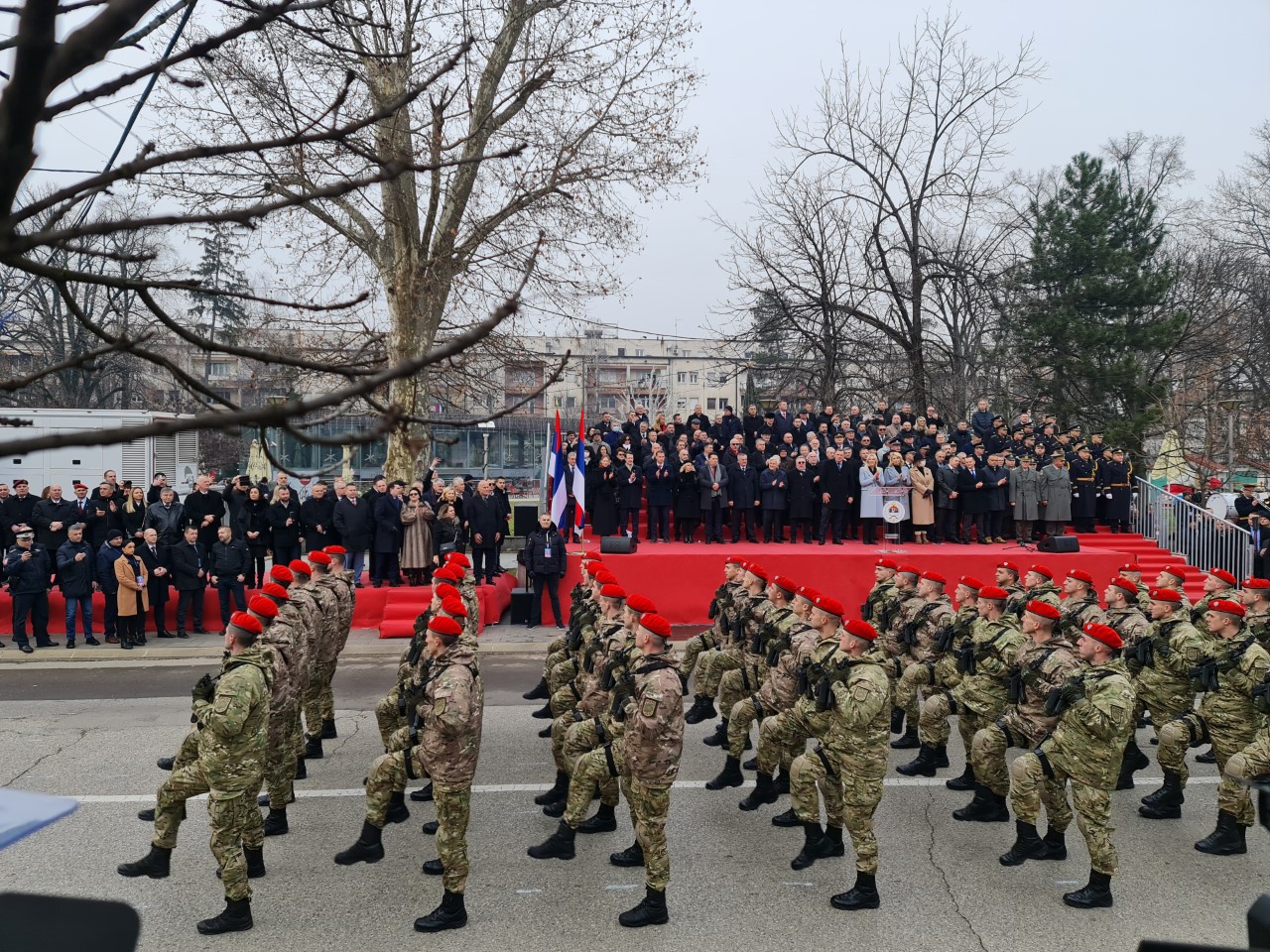
The Bosnian Serb leadership commemorated the self-proclaimed “Day of Republika Srpska” on the 9th of January, despite its unconstitutional status and the strong criticism of the international community. This celebration served as another instance of undermining the unity of Bosnia and Herzegovina, challenging both the European Union and the United States, and reaffirming the increasingly dangerous close ties between the Bosnian Serb political entity and his leader, Milorad Dodik, with Vucic’s Serbia, Orban’s Hungary and Putin’s Russia.
The January 9 holiday marks the anniversary of a pivotal event in 1992, when Bosnian Serbs declared the establishment of their own state within Bosnia, triggering a devastating four-year war that claimed over 100.000 lives and caused hundreds of thousands of refugees. While Bosnian Serbs view the holiday as sacred, for non-Serbs, particularly Bosniaks, it symbolizes the onset of the wartime horrors they endured in the 90s, including war crimes, ethnic cleansing and the genocide in Srebrenica.
Furthermore, in 2015, Bosnia’s Constitutional Court deemed the “Day of Republika Srpska” illegal and unconstitutional, asserting that the event is discriminatory against non-Serbs, i.e. Muslim Bosniaks and Catholic Croats.
Despite its unconstitutionality, this year more than 3.000 participants, including armed police officers, civil protection service members, Bosnian Serb war veterans’ associations paraded again on January 9 through the streets of Banja Luka, the political centre of the Bosnian Serbs, to observe the controversial holiday. The parade featured armoured police vehicles, police cars, helicopters, and, notably, a drone show. During the celebrations, onlookers and marchers in the crowd proudly waved Serb red, blue, and white flags. Members of a special police unit sang songs glorifying the Serb Republic as an autonomous entity. The festivity culminated with a concert and synchronized fireworks across all cities and towns in Republika Srpska. Additionally, a fireworks display took place in the Serbian capital, Belgrade, underscoring the Serbian government’s backing for Dodik’s regime.
Meanwhile, on the occasion Dodik announced that he was giving the Order of Republika Srpska, the highest in the political entity, to Hungarian Prime Minister Viktor Orban, praised as a leader that “is ready to acknowledge us (Bosnian Serbs) as a real political fact.” In 2023, the same award was given to Vladimir Putin.
Serbs in Bosnia will never relinquish “the day when Republika Srpska was born,” stated Dodik during the celebrations. A staunchly pro-Russian and pro-secessionist nationalist leader under US and British sanctions, Dodik currently holds the position of President of Republika Srpska. “We don’t want conflicts, we want (Bosnian Serb) police officers to defend our freedom and our houses while we sleep peacefully. Ours and that of everyone else who lives on this territory,” he added, stressing that “we are looking at Serbia, we are looking at Russia.”
The international community responded by raising concerns in Brussels, London, and Washington. Western nations are increasingly apprehensive that Russia might attempt to provoke unrest in the Balkans, starting from Bosnia-Herzegovina, as a diversion from the full-scale invasion of Ukraine initiated by Moscow almost two years ago.
The Organization for Security and Cooperation in Europe issued a warning, stating that the declaration of January 9 as Republika Srpska’s national holiday constituted an “act of discrimination” and was deemed unconstitutional. The United States also reacted and raised expectation “that the relevant law enforcement and judicial authorities will investigate any violations of law that occur related to the celebration of the Day of the Republika Srpska on January 9”. “The United States has acted to address anti-Dayton actions like this in the past and will not hesitate to do so again in the future,” the US Embassy in Bosnia and Herzegovina said. “The European Union has always emphasized that the sovereignty, territorial integrity, constitutional order and international personality of Bosnia-Herzegovina need to be maintained” and “any action against these principles will lead to serious consequences,” the EU stated.
Moreover, in a highly symbolic move on the eve of the celebrations, the United States Air Force made a training overfly over Bosnia and Herzegovina with two F-16 Fighting Falcons multirole fighters and one KC-135 Stratotanker, as part of joint air-to-ground training involving US and Bosnian forces. It was a demonstration of support for the integrity of the Balkan country and as a sign of readiness to react, in particular by supporting Bosnian land forces with air strikes in a possible heavy clash.
However, the celebrations proceeded as planned, delivering a fresh blow to the stability of Bosnia and Herzegovina. The January 9’s display orchestrated by Dodik can be read as one of the most dangerous secessionist demonstrations and as another political and symbolical move aimed at challenging and undermining the sovereignty of Bosnia and Herzegovina and its path towards EU integration.
Further News and Views
US approves possible sale of Javelins to Kosovo, angering Serbia
Sources: Balkan Insight, Anadolu, Tanjug, Euronews, Bloomberg, US Department of State
Amidst tensions between Belgrade and Pristina, the US has accepted a request from Kosovo to sell Javelin anti-tank missiles to Pristina’s security forces, for an estimated cost of 75 million dollars, angering Serbia.
“This proposed sale will support the foreign policy goals and national security of the United States by improving the security of a European partner which is an important force for political and economic stability in Europe,” the Department of State said. The possible agreement includes the sale of 246 Javelin FGM-148F missiles, 24 Javelin lightweight command launch units, plus training, support, and logistics services. Evidently the deployment of these weapons will serve as deterrent to any possible provocation by adversary armoured units.
Serbian President Vucic acknowledged the decision of Washington as “greatly disappointing” to Belgrade, but he assured that Serbia would continue to “act responsibly, contribute to stability in the Balkans and work on maintaining ties with the US.” Vucic also noted that the region, Kosovo included, is increasingly arming itself, but Serbia is not lagging behind, he warned. Meanwhile, the Serbian Ministry of Defence tabled a proposal to reinstate the compulsory military service in the Balkan country – and a similar move is under consideration in Croatia.
In December, Kosovo boosted its defence budget by an additional 40 million euros, surpassing 200 million euros. Prime Minister Albin Kurti, in July 2023, shared photos with a Turkish Bayraktar drone purchased from Turkey. Kurti also confirmed a significant expansion of the number of soldiers and a doubled military budget during his two-year term as PM. Despite lacking a conventional army presently, Kosovo aspires to establish regular forces in the coming years, a move that Belgrade strongly opposes.
Kosovo to ban Serbian dinar in the north, sparking row with Belgrade
Sources: Radio Free Europe, Anadolu, Bloomberg, BNE Intellinews, Euractiv
Kosovo’s Central Bank (CBK) has designated the euro as the sole currency for transactions in the Balkan country, marking a departure from the use of Serbian dinar by the Serbian minority community. Serbian payment systems and the use of dinars persisted in predominantly Serbian areas, in particularly in the north. Effective from the 1st of February, this decision aims at streamlining financial transactions and enhance currency market stability, clearly establishing the euro as the exclusive legal currency for daily transactions in Kosovo, Pristina claimed.
The decision, however, “directly threatens the physical survival of the Serbian people,” the Srpska Lista party in Kosovo said, recalling that Serbs are receiving pensions and aid from Belgrade in dinars. “We will use all available means against the banning of the dinar in Kosovo,” Serbian President Vucic warned, anticipating a potential new escalation of tension between Belgrade and Pristina.
Kosovo’s move is observed with anxiety also by the international community, concerned about a new crisis. “Kosovo and Serbia are expected to avoid uncoordinated actions that are not conducive to the normalization of relations, and that could have a negative impact on stability on the ground,” the EU said. “We urge the government of Kosovo to revisit this decision, consult with the affected communities, respond to the concerns expressed by the international community, and provide ample time for decisions to be implemented in order to mitigate the impact those decisions will have on its citizens,” the US Embassy in Kosovo stated. “We strongly appeal to Kosovo to delay the introduction date until an acceptable solution is found,” Christiane Hoffmann, a German government spokeswoman said.
EU - NATO
EU encourages Bosnia to work on reforms for negotiations to start
Sources: AP, Euractiv, Reuters
European Commission Chief Ursula von der Leyen, along with the Prime ministers of the Netherlands and Croatia, Mark Rutte and Andrej Plenkovic, urged Bosnia and Herzegovina to work towards EU integration goals, to accelerate reforms and seize the opportunity to initiate accession negotiations before the European elections.
While acknowledging Bosnia’s progress, the three EU political leaders stressed the need for additional efforts to secure a positive recommendation from the European Commission in March. Bosnia gained the candidate status in 2022, and negotiations could commence upon meeting the required compliance, Brussels decided last year. Dutch PM Rutte emphasized that there would be “no shortcuts,” for Bosnia, highlighting the need for urgent reforms on corruption, money laundering, judicial independen and the rule of law. Croatian Prime Minister Andrej Plenkovic urged Sarajevo to grasp what he said were “tectonic” changes in EU policies after the war in Ukraine, warning, however, that “if we miss March, the whole year will be lost”, as a reference to the expected vote for the European Parliament in June. Bosnian Prime Minister Bojana Kristo pledged dedication to achieving the set goals.
However, Bosnia continues facing ethnic divisions and political instability. Milorad Dodik, a pro-Russian Bosnian Serb leader, has threatened secession of the Serb-run entity.
ECONOMICS
Emigration is a growing concern for Kosovo and Albania
Sources: Sarajevo Times, Tirana Times, GAP Institute
Emigration, an endemic issue in the broader Balkan region, may intensify in specific areas, notably Kosovo and Albania. A recent study reveals that nearly one-third of Kosovar citizens are contemplating emigration, especially following the EU’s removal of the visa regime on January 1.
A study by the Pristina Institute GAP revealed that 28% of Kosovo citizens plan to emigrate in the first half of 2024 following visa liberalization, with Germany being the preferred destination. The report, titled “Tendency of Emigration from Kosovo after Visa Liberalization: Impact on the Workforce,” highlights construction, gastronomy, trade, and production as sectors most affected by workers’ departures. Economic reasons dominate respondents’ motivations for leaving, based on the survey. Albania also grapples with emigration issues since decades, posing a potential demographic crisis and economic risk, as underscored by Ekaterina Solovova from the European Bank for Development in Albania. Solovova stressed the need for concerted efforts to address emigration and boost economic growth through strategic foreign direct investments. Tens of thousands of people, mostly young, are emigrating every year from the countries in the Balkans that are still not part of the EU.

Stefano Giantin
Journalist based in the Balkans since 2005, he covers Central- and Eastern Europe for a wide range of media outlets, including the Italian national news agency ANSA, and the dailies La Stampa and Il Piccolo.

